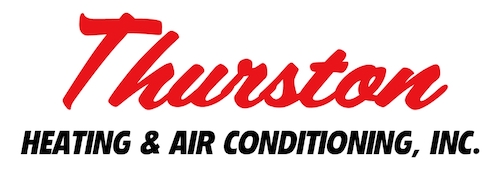
Purchasing your first home is an exhilarating experience. You’re likely trying to keep track of numerous details about making the right choice. We believe that understanding your future HVAC system is crucial. The property’s HVAC system represents a substantial investment and source of potential long-term costs, so being thorough should be a top priority for first-time homebuyers.
In this guide, we’ll outline seven tips for learning everything you can about a home’s heating and cooling setup. And if you want a more in-depth opinion from the pros, feel free to call Thurston Heating & Air Conditioning. Our experienced team can weigh in on your options with industry insights that are second to none.
1. What Type of HVAC System Is It?
Start by clarifying what kind of HVAC system the home features. Furnaces tend to last longer than air conditioners, and relatively new types of HVAC systems like heat pumps can offer average life spans that are even longer. Tracking down the make and specific model ensures you have a clear idea of how much routine maintenance it might need.
2. What Is the Current System’s Age?
It’s just as smart to learn how old the HVAC system is when you're looking at a potential new home. In general, HVAC systems should survive for around 10-12 years. Learning its approximate installation date helps you anticipate future maintenance needs or considerations if it might break down. Older systems are at a higher risk of problems, so fiscal planning for a replacement unit could be necessary sooner than you thought.
3. What Does the Warranty Cover?
Be sure to check the HVAC system is still under warranty. If it is, that's great news because it can lower maintenance expenses. HVAC warranties often cover parts and labor, but the details in each policy will vary. Review any terms that seem confusing to make sure you fully understand your coverage and any possible out-of-pocket costs.
4. When Was the Last Time It Received Maintenance?
Don't forget to check the maintenance history of the HVAC system, if this kind of history is available. This kind of information can demonstrate if the system constantly broke down or how often a tune-up was scheduled. You should at least try to track down a history of key tasks such as changing the air filter, which is a positive sign indicating regularly scheduled tune-ups.
5. What Are the Energy Efficiency Ratings?
Purchasing a home with a heating and cooling system with high energy efficiency isn’t just smart; it leads to more manageable utility bills and less of an impact on the environment. Try and find the seasonal energy efficiency ratio (SEER) ratings for air conditioning and the annual fuel utilization efficiency (AFUE) for furnaces. The higher the SEER rating, the more efficient the cooling over the whole season, while high AFUE ratings illustrate that the fuel is more effectively burned for useable heat.
6. Can You Spot Trouble During Your Inspection?
Even if you don’t have heating and cooling expertise, you should still inspect the HVAC system yourself. Keep an eye out for signs of problems that haven't been mentioned by the seller. This includes strange noises, spots with uneven heating or cooling and attempts to hide any serious damage.
7. Is an Experienced HVAC Technician Available to Help?
If you're unsure about the current state of the HVAC system, it's never a bad idea to get input from trained HVAC professionals. They can spot things you might miss, such as leaks in the refrigerant, wiring issues or flawed ductwork.
A Chat with Thurston Heating & Air Conditioning Helps Take the Stress Out of Your Home-Buying Journey
Selecting your first home is meant to be a joyful event, and Thurston Heating & Air Conditioning will do everything possible to ensure that doesn’t change. Get in touch with us at 308-624-3485. We can talk about how our HVAC services give you peace of mind, giving you what you need to step into your new home with confidence.
